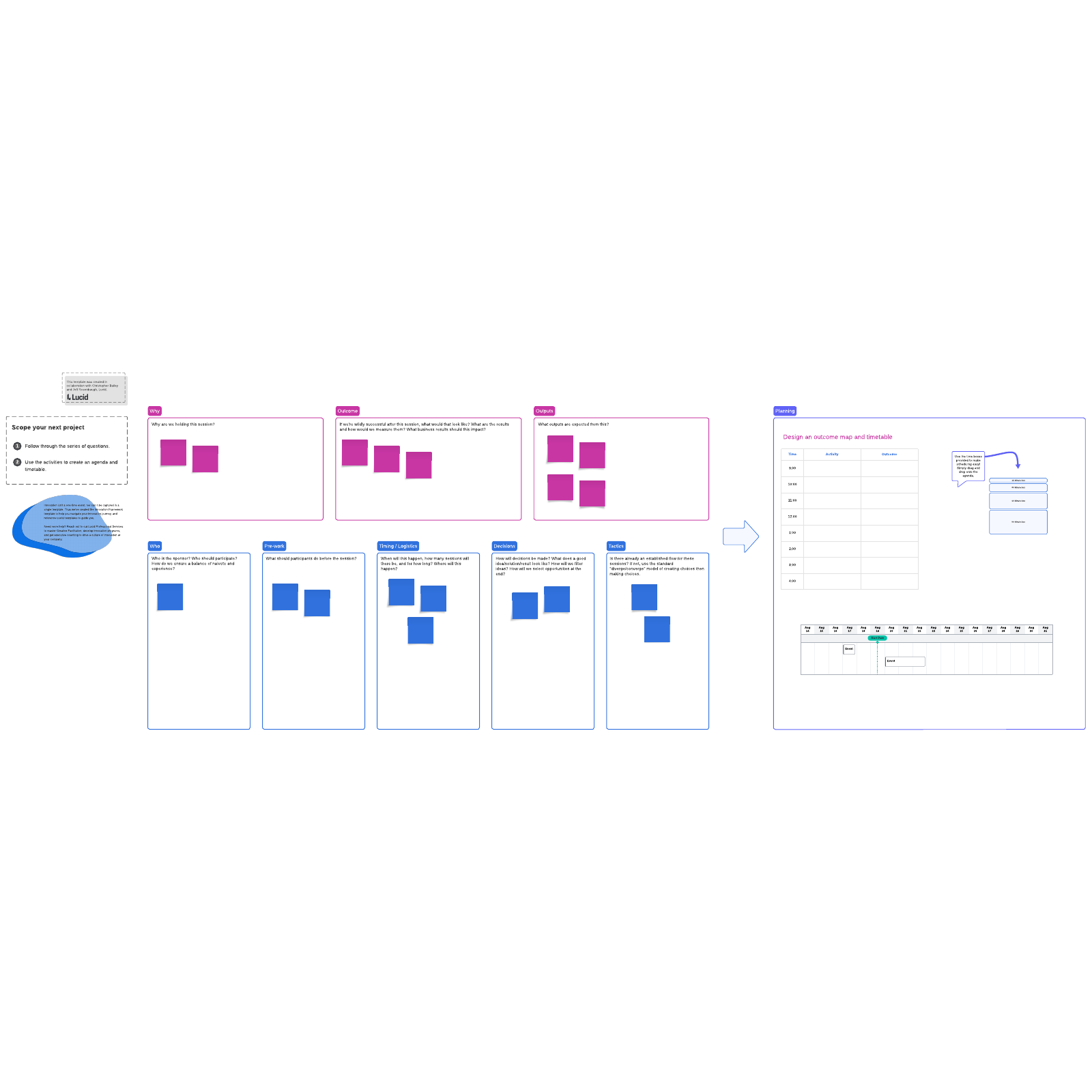Ideation Strategy Template
Scope your next project through the process of strategic ideation.
or continue with
By registering, you agree to our Terms of Service and you acknowledge that you have read and understand our Privacy Policy.

What is the ideation strategy template?
Having a great idea is the first step in any project. But an idea without a strategic approach is just a problem in disguise. That’s where this template comes in. The ideation strategy template will lead you through strategic ideation to scope your next project. That means thinking through the project logically and systematically so that the scope is neither too big nor too specific. At the end of the exercise, you’ll end up with a perfectly defined approach to solving problems from which you can execute a solid project.
Benefits of using the ideation strategy template
There are several benefits of using our template for strategic ideation:
- Simplify your approach to project scoping. The template includes the right amount of detail – not so much that the project seems impossible, but enough that you know which steps you need to take.
- Make a structured plan for purposeful ideation. You’ll gain clarity on what needs to be addressed before breaking the project into individual tasks.
- Easily collaborate with your remote team. Since the template is optimized for hybrid and distributed team members, you can include them in the work session and gain their input so everyone is aligned.
How to use the ideation strategy template in Lucidspark
Answer each tactical question using a sticky note:
- Why are we holding this session?
- If we’re wildly successful after this session, what would that look like? What are the results and how would we measure them? What business results should this impact?
- What outputs are expected from this?
- Who is the sponsor? Who should participate? How do we ensure a balance of naivete and experience?
- What should participants do before the session?
- When will this happen, how many sessions will there be, and for how long? Where will this happen?
- How will decisions be made? What does a good idea/solution/result look like? How will we filter ideas? How will we select opportunities at the end?
- Is there already an established flow for these sessions? If not, use the standard “diverge/converge” model
Use the planning activities to create an agenda and timetable:
- Design an outcome map and timetable.
- Use the time boxes provided to make scheduling easy! Simply drag and drop on to the agenda.
- Use a timeline to plan events.
Intentionally approach your project strategies with Lucidspark’s Ideation strategy template.

Christopher Bailey & Jeff Rosenbaugh
Professional Services, Lucid



